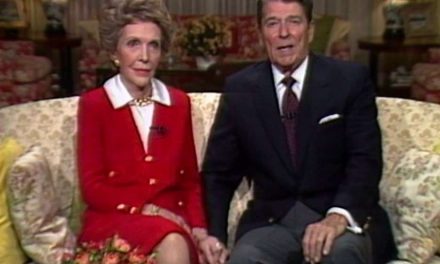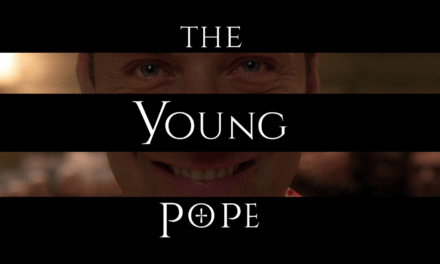Television often has subtitles in my household and not just when we are watching Euro-dramas on BBC4. I hadn’t given much thought to this until I read an excellent article on the topic by Maggie Brown in the Royal Television Society’s magazine (Television, May 2016), entitled ‘Sounding off about the unheard’. I thoroughly recommend it, particularly to anyone who teaches film/video making.
At home, we began to turn on the subtitles during our box-set watching of The Wire some years ago. My hard-of-hearing husband complained he couldn’t hear any of the dialogue and I had to confess to difficulties too. I can understand why The Wire’s makers objected to what became a common practice but the choice was subtitles or not watching at all as far as we were concerned.
After that, the subtitles came on more frequently, partly because the high level of sound otherwise required might threaten our friendly relationship with the neighbours. The presence of subtitles is undoubtedly distracting and interferes with the carefully composed image. And with anything live, such as the news, the titles are so far behind the sound as to be too hard to follow. But for contemporary drama productions from Line of Duty to Richard III, we now regularly turn on the subtitles.
We are not alone. Maggie Brown reports that in 2009, Jay Hunt, then the BBC One Controller launched an “audibility project”, involving a 20,000-strong panel of viewers and listeners. Despite that in in 2014, Jamaica Inn, on BBC One, notoriously generated more than 2,000 complaints about mumbled conversations; its adaptor, Emma Frost, admitted that it “sounded like listening through mud.”

And, more recently, the first episode of the third series of Happy Valley sent BBC Controller of TV Channels Charlotte Moore back to the edit suite ‘ to work very hard to make it crisper, and change these [sound] levels’.
So why might there be problems? The main problem identified by viewers is that of ‘mumbling’ actors. Certainly it would seem that the theatrical mode of clear pronunciation, so strongly associated with British acting is dying out, and being replaced by what seems to be thought of as a more realist style of speaking which means talking very quickly, in a low voice and often turned away from the camera. Sarah Lancashire and Shirley Henderson in Happy Valley did indeed exemplify this approach.
In real life, of course, we might ask someone to speak up or repeat what just been said but in a drama that would carry ‘realism’ too far. But connected with this change in acting is, I think, a change in what is deemed to be a more realist style of writing dialogue. We can see this change if we compare soap opera writing with writing in other forms of drama. British soap opera actors adopt a version of the realist style of speaking but soap opera dialogue makes sure that key points are clearly articulated, often through repetition. Indeed because gossip continues to be an important element in soaps, the ‘redundant’ dialogue which carries this process of mulling over the important narrative events ensures that audiences can easily catch up with what they might have initially missed.
Other dramas particularly those which rely on the unfolding of a mystery or the detection of a crime are much more likely now to avoid making the clues look too obvious. So instead of the clarity of the traditional detective (Morse, Miss Marple, Tennison), the current practice is for the protagonists to be more confused and more emotionally engaged. Hence the tendency for them to be on location and to deliver exclamations of half-understood explanation while they run towards the next crisis.
There is though a third factor which is the notion that good television is defined by being ‘cinematic’ so that the emphasis is all on the stunning images, the composition within the frame, the beautiful locations. In adaptation studies, the mantra that novels use words and films use images is criticised as one of the key scriptwriting fallacies which seriously underestimates cinema’s use of the aural, including dialogue. Television in the digital era seems to be at risk of falling into that trap.
And as Maggie Brown interestingly discusses the dominance of flat screen television technology is a factor in all of this. While giving ever more clarity to the picture, the sound seems to be getting murkier. She quotes a Which magazine review which concluded that ‘Modern TVs might have fantastic picture quality, but their sound is often disappointing, because new, slimline TVs have limited space for built-in speakers’. Considerations of sound are almost always secondary to those of picture on set.”
Brown quotes Tom Harper, Director of the BBC’s production of War and Peace simply blames the technology. Audibility problems, he says dismissively, ‘arise at the broadcast and TV reception point, as the soundtrack is played out on reduced bandwidth to two tiny speakers’. I was quite shocked at the arrogance of this as if it were not his responsibility to offer the audience the best possible experience, taking the viewing (and hearing) conditions into account. His words seem to confirm that considerations of sound are indeed secondary to pictures.
By contrast, Chris Ashworth, a sound engineer who also worked on War and Peace, refutes the idea that sound problems can be solved by simply upping the levels. A number of sound practitioners suggest that there are ways of dealing with the problem but that they require a commitment from actors, director, producer and commissioner. They can involve directing the actors with sound in mind, positioning mikes differently, checking the sound properly when viewing rushes (ie not on an iphone), automatic dialogue replacement and swapping sound from other takes, mixing and matching to create the best track.
But all this costs money which won’t be forthcoming if sound is not valued and if the diversity of the audience in terms of hearing is not appreciated. In my experience of watching student films at Goldsmiths and Glasgow as well as when organising the RTS student awards for Scotland, sound is nearly always a problem even in the most visually sophisticated offering. Which is why I would be interested to know how far the creation of a creative and audible soundtrack is a priority on filmmaking courses which are training the next wave of television directors and producers.
Christine Geraghty is an Honorary Professorial Fellow at the University of Glasgow. Her publications on television include a contribution to the 1981 BFI monograph on Coronation Street; Women and Soap Opera (Polity, 1991); and My Beautiful Laundrette (I B Taurus, 2004). Her BFI TV Classic on Bleak House was published in 2012 and her reflections on the beginning of her work on soap opera appears in ‘The BFI women and film study group 1976 – ?’, Renewing Feminisms, Radical Narratives, Fantasies and Futures in Media Studies H. Thornham and E. Weissmann (eds) I B Taurus 2013. She is on the editorial board of the Journal of British Cinema and Television and sits on the advisory boards of a number of journals, including Screen.





